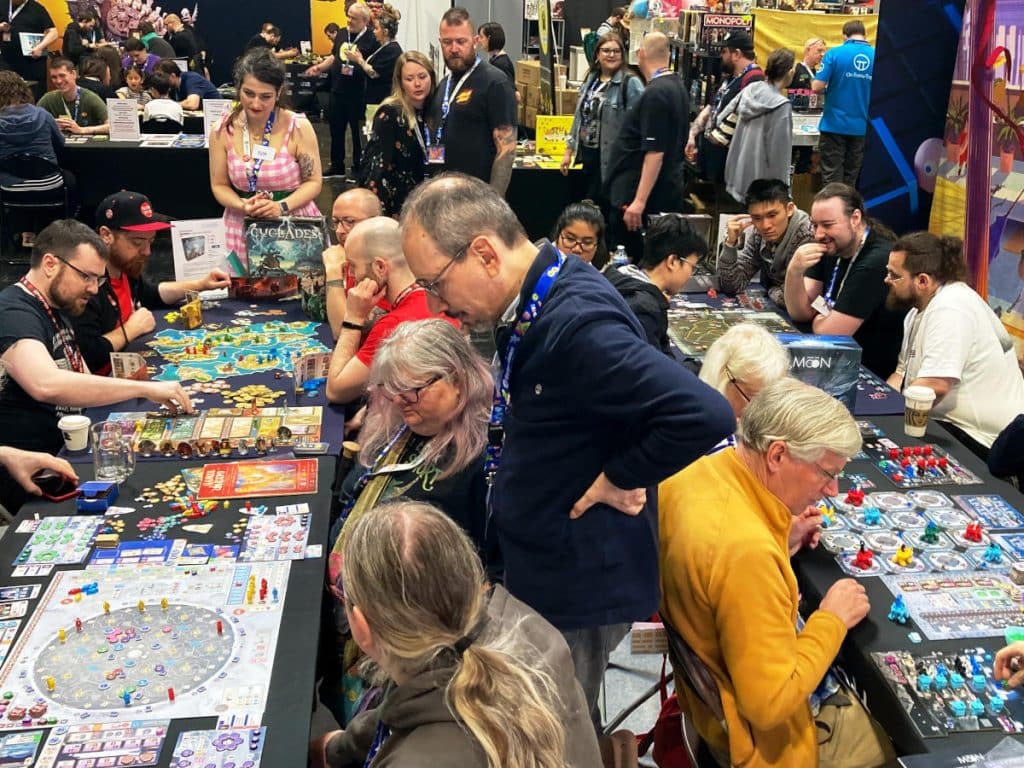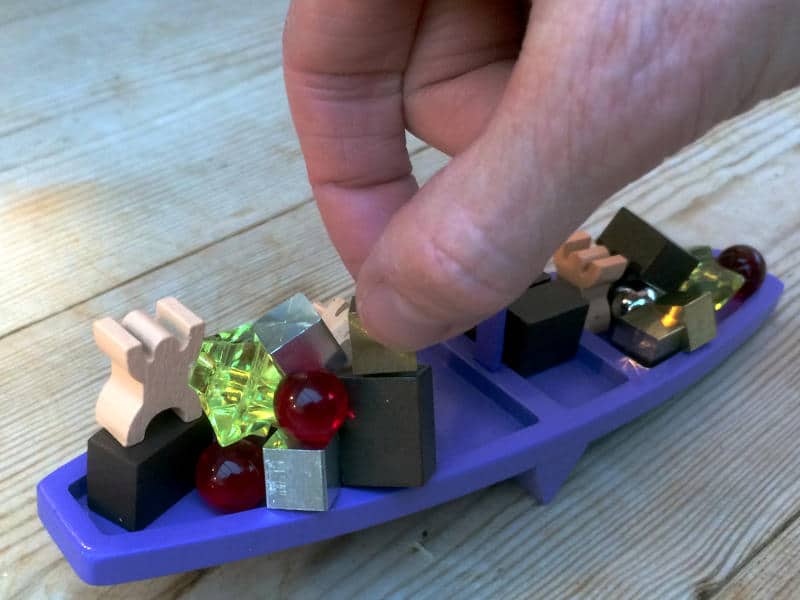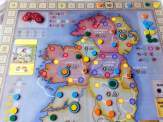If you’re a competitive person, you want to win. If you’re a really competitive person, winning is your absolute goal. Competitive games will probably be your favourite, but even when you play cooperative games, you probably still try to do everything in your power to beat the game and take the win for the team. However, I don’t think playing games is necessarily about winning. There are many other benefits of enjoying a board game together that I want to talk about in this article.
Listen to the Audio Version
Intro Music: Bomber (Sting) by Riot (https://www.
Voyager by Blue Dot Sessions
I’m a competitive player myself, even though I have mellowed a lot in recent years. I used to be an awful quarterbacker in cooperative games, telling everyone what needed to be done. I got my main enjoyment out of winning games, either against the others around the table or as a team against the game – even though I would use the word “team” very loosely when it came to playing cooperative games.
Critical Reviews
Nowadays, it’s all a bit different. I have changed my approach quite a bit and I’m a lot less competitive than I used to be. I generally still want to win, but no longer at the detriment of the other people around the table.
As a game reviewer, I am often focused on the gameplay experience of the other players. Of course, I do critically look at whether a game works, if it’s designed well, if the rulebook is easy to understand and other similar factors. However, how much I and everyone else enjoy the game is very important too. In fact, sometimes it’s more important than the other factors. Component quality, visual presentation, rules complexity, game length and a lot of other things affect gameplay experience and are therefore things I often focus on a lot.
As a result, winning or losing is actually secondary or even further down the list of importance. It still matters, but it’s more about how good or bad it feels to win or lose and why those emotions are evoked. If a game makes a player work for their victory, they can be proud of their achievement. That can be an important influence on how much they enjoyed the game. Similarly, everyone else can really appreciate the hard work the winning player put in.
Mind you, in some games winning or losing really doesn’t matter. There are many games that are more about the experience and not victory points. They might encourage conversation or laughter. Some games are really good at appealing to the social element that a lot of people look for when they play games with friends or family.

Games as a Focal Point
In fact, sometimes games can be a really important tool to bring people together. They become the focal point and are an excuse for a group to sit down together. Everyone is invited to enjoy the game.
It is no surprise that some therapy groups use board games as a means to bring people together. Rather than having a formal therapy session where everyone is expected to contribute and share their problems in front of everyone else, playing a game together creates a safe space where people can decide for themselves when they’re ready to talk or even decide not to talk at all.
Board games can allow for conversations to start naturally and it is all right if the game is never finished. It isn’t necessary to declare the winner or loser. If people open up and share their worries and the game is abandoned, then that’s absolutely fine, just as it is all right to not talk at all and just focus on the game.
After all, games can create a sense of belonging, even when you play competitively. They are a shared activity, a shared hobby, that allows people who don’t know each other to build trust and share in an experience. They allow us to find out more about ourselves and everyone else around the table.
Games can also be about escapism, of course. As I said, spending time with others and not having to think about anything else for a few hours is in itself a kind of therapy. Games can also evoke laughter, they can give you a sense of achievement and they provide a safe space in which to explore the feelings of losing and failure.

Game Therapy
Speaking of therapy, games can also help improve dexterity. Whether it’s holding a hand of cards, rolling dice, placing tiles or moving pawns, they require a certain level of hand-eye coordination and fine motor skills. Playing a board game can be a fun way of exercising these skills. There are various board game accessories that can help as well. Dice towers and trays make dice rolling easier. Cardholders allow people to focus on taking and playing cards. Larger pawns or tokens make moving them easier.
Games can also help with improving your brain functions. We have all heard about people doing their daily crossword or Sudoku. However, classic and modern board games can help in the same way. Whether it’s as simple as encouraging people to focus on the game and not let their attention wander or if it’s playing a memory game or something in between, there are many levels to choose from. Playing a relatively simple game where you need to formulate and remember a strategy can be a great way of stimulating your brain. Even just remembering basic rules can be a great way of training your memory.
I don’t even think games have to be specifically designed for use in these types of therapy. Of course, the choice of games has to be considered, but with a bit of adaptation, many games will be suitable. If you put a bit of thought into it, then I’m sure you can find a game that is suitable for the situation. It’s no different to choosing games that fit the tastes and preferences of your game group, as well as your emotional and mental state at the time.
What About You?
As you can tell, I think board games aren’t purely about winning. Sure, most games are designed in a way that expects players to at least try to win. However, winning isn’t the be-all and end-all of board games. They have a lot more to offer.
Now I wonder what you think about winning. Are you a competitive player? Have you ever considered using board games in a more therapeutic way? Do you play board games to escape from your daily worries and pressures? Do you know someone who has hugely benefited from discovering board games? As always, please share your thoughts and experiences in the comments below. It would be lovely to hear how board games can benefit people in other ways.
2 Comments
What are you thoughts?
Add your thoughts on the topic to the form below and join the conversation.
Audio Version
Intro Music: Bomber (Sting) by Riot (https://www.
Voyager by Blue Dot Sessions
Playlist
These are the songs I listened to while I was writing this topic discussion article:







We are huge believers in the uplifting benefits playing games and have – it is part of the entire ethos of us as a publisher! There are so many benefits in playing games, whether they be social or mental health.
I feel very fortunate that I found games and that they do so much for my own mental health. No matter what kind of day I’ve had, I know that meeting with friends or family and playing games will make me feel so much better – win or lose!
Thank you for your comments. Well said.